IFRC Secretary General Chapagain calls for global action to provide vaccine to all
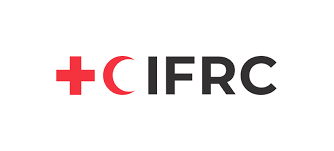
Kathmandu: The Secretary-General post of International Federation of Red Cross and Red Crescent Societies (IFRC) will now be held by ‘competent, highly capable and dynamic’ personality Jagan Chapagain,” Elhadj As Sy, the then IFRC Secretary-General introduced his successor this way during the leadership handover ceremony held in Geneva on January 31, 2020.
The same person Chapagain, the first Nepali citizen to hold the highest office in the IFRC, the world’s largest humanitarian network, comprising 190 National Red Cross and Red Crescent Societies, has further broadened the horizon of his identity and proved his expertise through new initiatives in the area of humanitarian assistance in a short period.
A special governing board meeting of the IFRC on December 3, 2019, had elected him to the post by a majority for the first time from entire Asia.
The Board comprises 29 powerful countries in the world. The 52-year-old Chapagain who has spent more than 25 years with IFRC assumed his office on February 1, 2020. Before becoming the Secretary-General, he was Under-Secretary-General for Programmes and Operations, Chief of Staff, and Director of the Asia Pacific region.
The world was already aware of the outbreak of COVID-19 in China and its transmission to other countries when the Nepali humanitarian and Red Cross and Red Crescent veteran Chapagain took charge of the IFRC Secretary-General.
Talking to RSS, he said, “Our focus during the initial days of the COVID-19 infection was for prevention the endangered community from it and its treatment and life-saving efforts. For this, recommended public health standards were followed and promoted and required health material assistance programs were conducted. This is still going on. We are working to ensure everyone’s access to vaccines after their successful testing. All our mechanisms are mobilized for the same.”
IFRC has been giving continuity to provide support to mitigate natural disasters, disasters invited due to climate change and man-made disasters, and to victims even in pandemics.
The activities carried out by him in the humanitarian sector in around 18 months have been admired in IFRC member countries. The recently held ‘G-7’ summit was also focused on vaccines.
The news was published and disseminated that the top leaders who participated in the Summit had praised Secretary-General Chapagain’s humanitarian service.
IFRC had been continuously advocating for providing vaccines to developing and poor countries under the COVAX mechanism.
Chapagain said, “I am very happy for G-7’s commitment to providing vaccines to poor countries. The vaccine should be distributed fairly.”
It is said that G-7 has expressed commitment to provide around billion doses of vaccine within 2022. As per the study, the commitment was 10 percent less than the need. The poorest 50 countries of the world have got only two percent of vaccines. Seventeen percent population of the world lives in these countries. Around 60 to 70 percent population should be vaccinated at the national and international levels to build immunity power.
He opined, “All classes and sectors of the society should have access to the vaccine against coronavirus. The pandemic will continue if certain areas of the population are not vaccinated. We encourage the nation to adopt all possible measures for produce, distribution, and increase equitable access of COVID-19 among the nations and inside the countries.”
Pandemic control laws needed
According to him, COVID-19 took a dreadful and cruel form as countries of the world failed to collaborate especially in the health sector. IFRC has also estimated that the coronavirus infection would not have taken the pandemic dimension had there been collective efforts to fight against the disease in time.
Chapagain has pointed out the need of formulating Inter-Country Epidemic Prevention and Control Laws as well as domestic laws to avoid such mistakes in the coming days. It is said IFRC has also advocated for such legislation in the World Health Organization (WHO)’s latest assembly.
“The inter-country legislations related to pandemic help in the joint fight against the pandemic and its control. A successful treaty further supports especially the health volunteers and others in the prevention of and preparedness against the pandemics. It also promotes domestic and international investment as well as strengthens the universal equality,” the IFRC General Secretary said.
As he said, such legislation also emphasizes the rights of all including the migrants and refugees to be safe from the pandemic along with access to tests, vaccines, and treatment. It also outlines the need for a better and more equal national and regional framework for preparedness against the pandemic.
Assistance to Nepal will continue
South Asia has been affected more by the second wave of COVID-19. There was a high infection and mortality rate, especially in Nepal and India.
General Secretary Chapagain shared that cooperation would be continued to Nepal and other countries which are struggling against COVID-19 for saving lives and extend accessibility to adequate health services and vaccines.
Nepal Red Cross Society said that IFRC had supported medical equipment to health facilities and hospitals, and PPEs, face masks, sanitizer to health care staff as well as capacity enhancement of health workers during the initial phase of COVID-19. It provided an oxygen concentrator, oximeter, thermal gun, body bags for managing the dead bodies of COVID-19 victims in the latest phase. IFRC has also coordinated for procuring vaccines.
Stating that it will take time before the pandemic comes under control, General Secretary Chapagain underscored the need for collective efforts at the global level for the distribution of health materials and technologies and equitable access to vaccines.
Who is Mr. Chapagain?
Chapagain was born in an ordinary family from Divyanagar of Chitwan 50 years ago. He has 10 siblings including two sisters.
He has extensive experience and broad knowledge of the International Red Cross and Red Crescent Movement, having begun his career as a youth volunteer at the Nepal Red Cross, advocating for and representing community voices.
Mr. Chapagain has spent more than 25 years with IFRC, working across Europe and Asia. Prior to becoming Secretary General, he was Under Secretary General for Programmes and Operations, Chief of Staff and Director of the Asia Pacific region where he provided leadership in responding to large-scale humanitarian crises and in building resilient communities in partnership with National Red Cross and Red Crescent Societies and external partners across the region.
He entered the IFRC service from the Bhutanese refugee camp after completing Bachelor Degree in Mining Engineering from India. He was the Head of all humanitarian assistance programmes in Tajikistan in 1996 and in South Asia since 2003.
He had led the IFRC’s rescue and relief operations during the Gujarat earthquake in India in 2001, the tsunami disaster in 2004 that badly affected Sri Lanka, Maldives and India and the Pakistan earthquake in 2005, among other disasters and calamities.



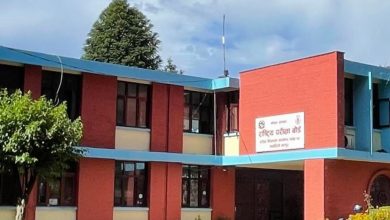
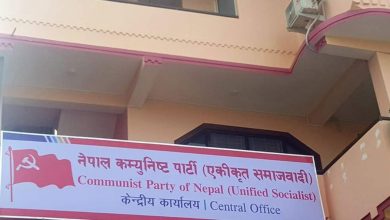
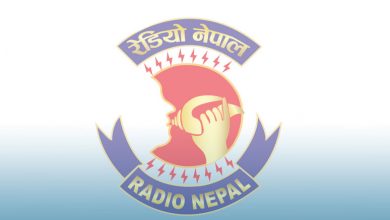

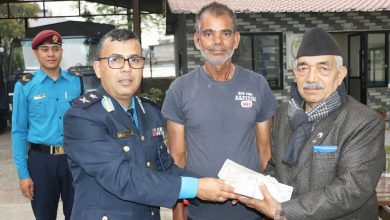
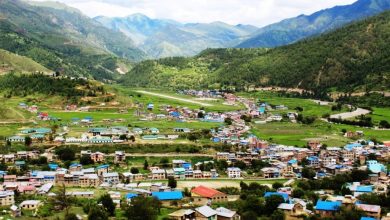
प्रतिक्रिया राख्नुहोस्